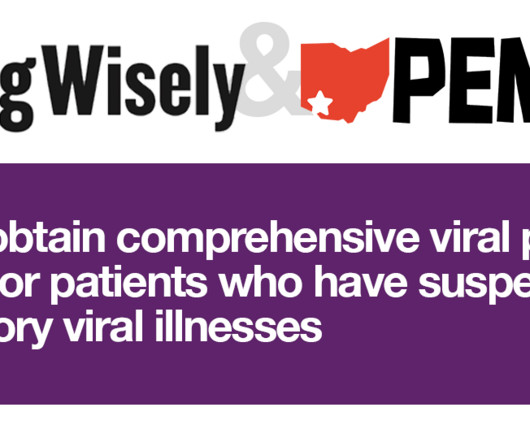You don’t need to order comprehensive viral panels for most patients
PEMBlog
SEPTEMBER 27, 2023
This is a blog post designed to disseminate the important work of Choosing Wisely , an initiative of the the American Board of Internal Medicine Foundation, the goal of which is the spark conversations between clinicians and patients about what tests, treatments, and procedures are needed – and which ones are not.












Let's personalize your content